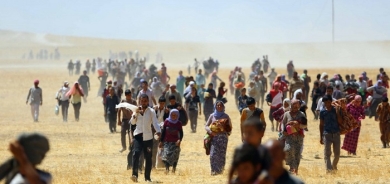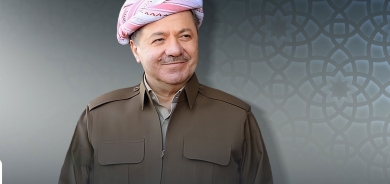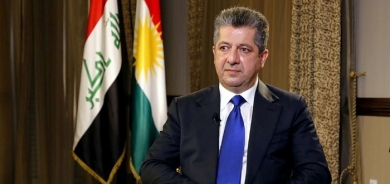Iraq amid Democracy & Instability

At the dawn of new millennium, the merit of national security has changed for ever. And the rising challenges of 21st century would invite all decision-makers world-wide as to revise their security measures all towards food security, water security and energy security (GULAN 813, 817, 829). Ironically, the Iraqi are all caught right now amid the hard security-measures for stability and the darken revenge of its victims. Alas, at the roots of the fault lines, what has been claimed as liberty-&-freedom by few best communities in Iraq is seen as social injustice to the rest, whilst the whole state of affairs seems not serving democracy any more. In Fact, modernization is all about an adequate level of institutionalisation among men, as well as among the communities of each nation. Ultimately, it is rather difficult to ascertain the exact degree of control, which the democratically local or international institutions can exercise over the crushing state-of-authority in Iraq. Simply, for the danger is still exists that an authoritarian regime may soon replace an infant rather democratic one. To that end, empowerment of Iraqi communities via “Federalism” is an urge, and Kurdistan region is just the onset for such an ambitious plan. For, it is unhappy time for all the Iraqis as the democratic gains has hitherto shown not to be on par with the pains of such an inherent tendency to create inequality. Its persisting dilemma is growing in magnitude due to the lack of balance between the declining power of common people and the utopian possibilities of their oil-revenues. So the democratic process along with relevant development require legitimacy if they are about to work for essence of the local communities. In Iraq, as in other Middle Eastern countries, there seems a drift between the twin pillars of liberal democracy: liberty and equality. The drift is invisible, and has become deeper (GULAN 820). And that is not far from his main concern, Zbigniew Brzezinski: ‘global inequality is bound to become a major issue of twenty-first-century politics.’
Ad rem, it is a tough lesson for USA which is seeking a global authority. For the riding rather authoritarian tendency may push the lovers of freedom here and there as to subordinates their inborn dignity to rising authoritarian forces and their values of community to personality. The recent collapse of socio-economy in Middle Easte has shown how impovershed communities would deal with personality of their poiliticians (GULAN 823). Simply, the urge is now for a real leadership than the men-of-means. Again however, big events have shown that global power cannot generate global authority, and the universality theme would argue for the reverse. Where are we, argued recently Thomas L. Friedman, ‘America is always at its most powered and most influential when it is combining innovation and inspiration, wealth building and dignity building, the quest for big profits and the tackling of big problems’. No doubts that democracy can serve as means of communication between the Iraqi communties all towards a better co-existence. And the political stability in Iraq is ultimately dependent on a culture of understanding that can advance social justice. Otherwise, democracy may become an empty academic talk. For, what past dictators violated of the dignity of their common folk, the Western intellects could not as yet appreciate it most. Thomas L. Friedman has outlined the crisis that is surrounding relevant petro-politics. Sadly, the ‘Free World’ and the ‘Petro-dictatorship’ have embarked upon power relations, which must necessarily shame the grandeur of democracy. And the readers may be perfectly clear why the force of oil, as one vital wealth for Iraq has worked so far against the promotion of democracy than for it. In short, the current crisis of deep-clash between democracy and the neccesity-evils of stability in Iraq has to be overcome yet first by the ”Free-World” involved. For if the pride place of democracy to moderns, according to F. Fukuyama, would go beyond reason and desire so ‘this leads them to demand democratic government that treat them like adults rather than children’. And thus, and thus to let the Iraqis as to assert command over their destiny.
Dr. Anwar A. Abdullah (Al-Barzanji)
Author of
East West: Sword & Word
Publisher: BoD GmbH, Germany

 Dr. Anwar A. Abdullah (Al-Barzanji)
Dr. Anwar A. Abdullah (Al-Barzanji)





